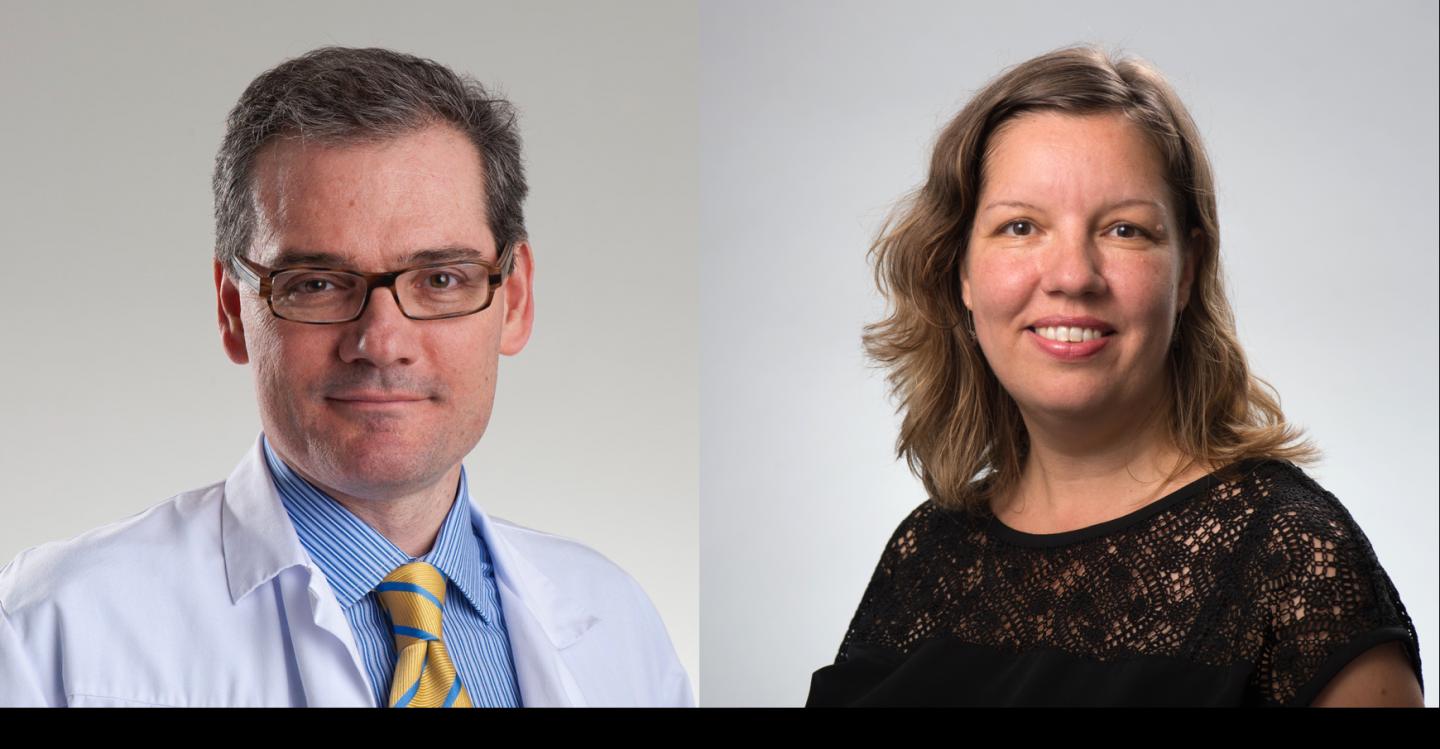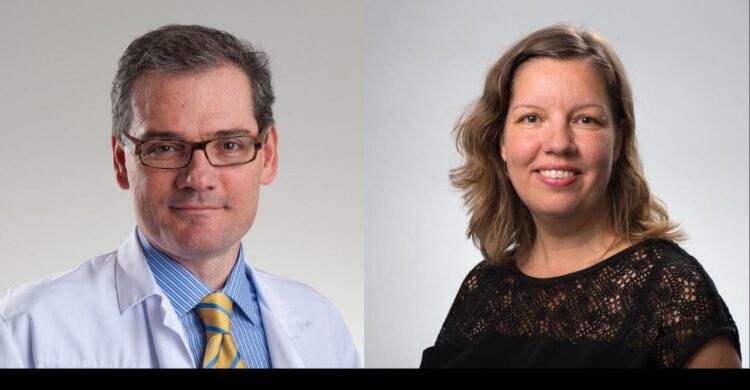
Credit: Ludwig Cancer Research
NOVEMBER 06, 2020, NEW YORK – Ludwig Cancer Research scientists have developed a method to significantly improve the preclinical evaluation of chimeric antigen-receptor (CAR) T cell therapies, in which the immune system’s T cells are extracted from a patient, engineered to target a specific tumor-associated molecule and then grown and reinfused for cancer treatment. Published in the Journal of Experimental Medicine, the study also reports the construction and evaluation of co-engineered CAR-T cells and applies the method to examine their effects on tumors in a mouse model of the skin cancer melanoma.
Though CAR-T therapies have been approved for blood cancers, their application to solid tumors has proved challenging. This is in part because the complex microenvironments of solid tumors dampen immune responses in a variety of ways, not least through the recruitment of various suppressive immune cells.
“Most of the studies on CAR-T therapies have been done using human T cells in mice that lack their own immune system–because if they had one, it would attack the human CAR-T cells,” said Melita Irving, a researcher at the Ludwig Institute for Cancer Research Lausanne Branch who led the study with Ludwig Lausanne Director George Coukos. “But the tumor microenvironment can have a huge impact on your T cell product, so we’re really interested in doing studies using engineered mouse T cells in immunocompetent mice. This allows us to observe the dynamic interplay between the immune system and the CAR-T cells that we transfer.”
The trouble is that mouse T cells are difficult to engineer and expand optimally in culture in the numbers required to rigorously model CAR-T cell therapies. For the current study, the Ludwig Lausanne team first developed a protocol to overcome those difficulties. It involved, among other things, the sequential use of three immune signaling molecules known as interleukins (IL-2, 7 and 15) in the cultivation and expansion of the engineered T cells.
They showed that CAR-T cells cultured using the protocol are markedly activated when exposed to their target. The cells also show signs of being more youthful and have molecular features common to memory T cells that grow briskly when stimulated by their targets.
“This means that when you transfer these cells, they’re very robust cells and can really expand quickly to control tumors,” said Irving.
Irving, Coukos and colleagues then engineered their cultured mouse T cells to co-express, along with the chimeric antigen receptor, the IL-15 protein–which promotes the formation of memory T cells. They then examined the efficacy of these “fourth generation” (4G) CAR-T cells against a mouse model of melanoma and compared their activity to that of ordinary mouse CAR-T cells generated using the novel protocol.
“We saw better tumor control by the IL-15 expressing CAR-T cells and better proliferation and persistence of the CAR-T cells themselves,” said Irving. The 4G CAR-T cells were also less prone to programmed cell death and expressed lower levels of a cell surface protein named PD-1, which promotes T cell suicide.
Their analysis revealed that the 4G CAR-T cells were not just killing cancer cells more efficiently. They were also reprogramming the microenvironment of the tumor to augment such killing. Their use resulted in an activation of natural killer cells–which target cancer cells–in the tumor microenvironment, and a marked decline in M2 macrophages, which suppress anti-tumor immune responses and support tumor growth.
“We hope that our publication of this protocol will help the T cell engineering community in general and enable a more robust preclinical evaluation of T cell therapies,” said Irving.
###
This study was supported by Ludwig Cancer Research, the European Research Council, the Biltema Foundation and Oncosuisse.
In addition to his Ludwig post, George Coukos directs the Department of Oncology at the University Hospital of Lausanne (CHUV-UNIL) and co-directs the Swiss Cancer Center, Léman. Melita Irving is also a group leader within the department of oncology, UNIL CHUV.
About Ludwig Cancer Research
Ludwig Cancer Research is an international collaborative network of acclaimed scientists that has pioneered cancer research and landmark discovery for nearly 50 years. Ludwig combines basic science with the ability to translate its discoveries and conduct clinical trials to accelerate the development of new cancer diagnostics and therapies. Since 1971, Ludwig has invested $2.7 billion in life-changing science through the not-for-profit Ludwig Institute for Cancer Research and the six U.S.-based Ludwig Centers. To learn more, visit http://www.
For further information please contact
Rachel Reinhardt
[email protected] or
+1-212-450-1582.
Media Contact
Rachel Reinhardt
[email protected]
Related Journal Article
http://dx.





